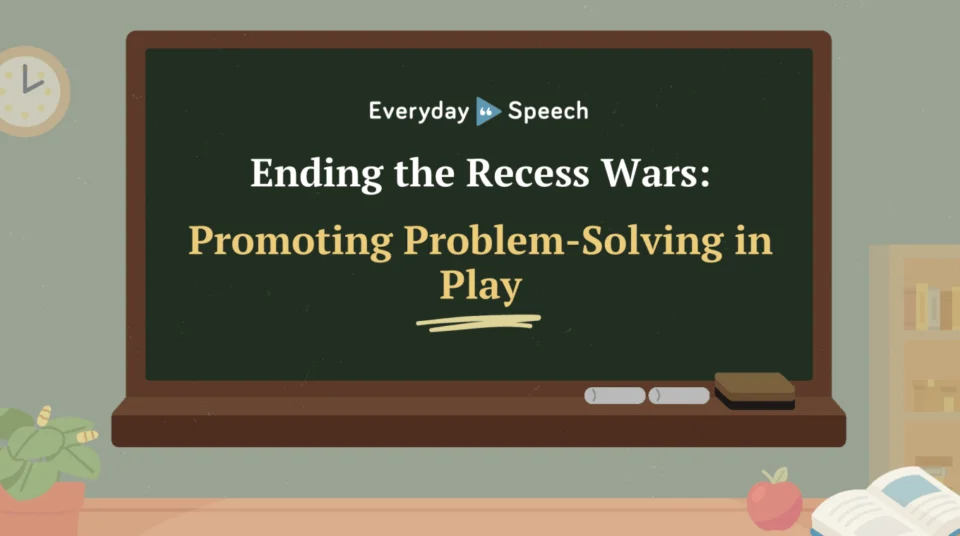Teaching PreK Students to Solve Problems: An Activity Guide for Educators
Get free social skills materials
No-prep lessons on self-regulation, emotional recognition, conversation skills, and more.
Sign up hereIntroduction
One of the essential skills young children should develop is the ability to solve problems. This blog post is designed to help educators teach PreK students how to identify, communicate, and resolve problems they encounter. By incorporating principles of Social-Emotional Learning, we can empower our students to become more self-aware, develop empathy, and build strong relationships with their peers.
No-Prep Activity: Problem-Solving Charades
This activity requires no preparation or materials from the educator and can be easily adapted to any classroom setting. In Problem-Solving Charades, students take turns acting out a problem and its solution without using any words. The rest of the class will guess the problem and the solution. This activity encourages students to think critically about different types of problems and how they can be addressed.
- Divide the class into small groups of 3-4 students.
- Ask each group to come up with a common problem a child might face (e.g., dropping a toy, not being able to reach something, having a disagreement with a friend).
- One student from each group will act out the problem and its solution, while the rest of the class tries to guess what the problem is and how it was resolved.
- After each round, discuss the problem and solution as a class to reinforce the importance of communication and cooperation in problem-solving.
Discussion Questions
- How did it feel to act out a problem without using words? Was it challenging? Why or why not?
- Why is it important to communicate our problems with others? How does it help us find solutions?
- What are some ways we can express our feelings and problems without using words? Are these methods as effective as talking about our problems?
- Can you think of a time when you solved a problem by talking to someone about it? How did it make you feel?
- How can we help our friends when they have a problem? What can we do to show them we care and want to help?
Related Skills
Beyond problem-solving, there are other relevant skills that can help PreK students develop their Social-Emotional Learning abilities. These include:
- Empathy: Understanding and sharing the feelings of others.
- Active listening: Paying close attention to what others are saying and responding appropriately.
- Conflict resolution: The process of finding a peaceful solution to a disagreement or problem between two or more people.
- Self-awareness: Recognizing one’s own emotions, thoughts, and values, and understanding how they influence behavior.
- Collaboration: Working together with others to achieve a common goal.
Next Steps
Now that you have some ideas on how to teach problem-solving skills to PreK students, we encourage you to explore additional resources and activities to support their growth in Social-Emotional Learning. To access free samples of related skill-building materials, visit Everyday Speech’s sample materials page. By incorporating these activities and discussions into your classroom, you can create a supportive and nurturing environment that fosters the development of essential life skills in your students.

